| All Artists: Ludwig van Beethoven, Frederick Stock, Chicago Symphony Orchestra, Artur Schnabel Title: Piano Concerti 4 & 5 Members Wishing: 0 Total Copies: 0 Label: RCA Release Date: 4/6/1993 Genre: Classical Styles: Forms & Genres, Concertos, Historical Periods, Classical (c.1770-1830), Modern, 20th, & 21st Century, Instruments, Keyboard Number of Discs: 1 SwapaCD Credits: 1 UPC: 090266139323 |
Search - Ludwig van Beethoven, Frederick Stock, Chicago Symphony Orchestra :: Piano Concerti 4 & 5
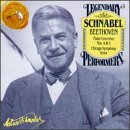 | Ludwig van Beethoven, Frederick Stock, Chicago Symphony Orchestra Piano Concerti 4 & 5 Genre: Classical
These 1942 versions were neither Artur Schnabel's first nor last recordings of these concertos; he recorded the cycle for HMV in 1932 and remade four of the five after the war. They were, however, the final recordings of F... more » |
Larger Image |
CD DetailsSynopsis
Amazon.com These 1942 versions were neither Artur Schnabel's first nor last recordings of these concertos; he recorded the cycle for HMV in 1932 and remade four of the five after the war. They were, however, the final recordings of Frederick Stock, who built the Chicago Symphony into a major orchestra. These collaborations do cause sparks to fly between soloist and orchestra, resulting in intense performances with palpable expression in every bar. The recorded sound is only fair, but this kind of music-making easily transcends such limitations. --Leslie Gerber Similar CDs
Similarly Requested CDs |
CD ReviewsTop performances of both works kreisleriana16 | Minneapolis, MN USA | 12/21/1999 (5 out of 5 stars) "I have been familiar with both recordings; first on 78's which I transcribed to tape, the Victrola recordings that RCA re-issued on the LP format, and now the CD's. Other than the opus 109 and 111 piano sonatas these are the only known commercial recordings Schnabel made in this country and have to rank as amongst his best. Schnabel stayed in the United States during WWII and lectured at the University of Chicago as well. His lectures and antidotes need not be repeated here except to say that he was - as we know - a musician first and then a pianist.That should not sell neither performance short. Frederick Stock had built the Chicago Symphony to one of the great ensembles. All though the sound is not the best by today's standards it most likely is better than many other recordings of this period thanks to the superlative recording accoustics of Orchestra Hall at that time. This is a major advantage of the earlier 1932-33 recordings he made as well as the post-World War II recordings made in London. In any event one buys recordings of this genre for the performance, the musicianship with sound being secondary.Make no mistake, there is music being made here to an extent that would be hard to equal by anyone's standards today. There are no splices, no fancy set up of microphones at every music stand: just the basics. What comes out of all of this are performances to set the standards to come for anything else in the future - and it will hold true as we approach the 21st century.The CSO was in top shape and displayed the virtuosity that it had at that time. The second movement of the G Major, for example, is simply moving. What more can be said? If Schnabel was the musical servant to the composer he served Beethoven well in both works. The G Major was the last recording Stock made with the CSO. Ironically it would also be one of the last Reiner would make some 20 plus years later in the Cliburn recording. One can only speculate as to what might have happened if Stock had lived, if the war was not on and recordings could be made, if . . . All though the listing shows that this CD is out of print it was purchased at a well known major book store in December, 1999. Let's hope that RCA had the good sense to bring the recording back to general circulation. It simply is a must have in anyone's library." An everlasting reference pattern! Hiram Gomez Pardo | Valencia, Venezuela | 06/26/2006 (4 out of 5 stars) "
Beethoven' s Fourth Piano concerto has been enhancing through the years and according to my personal point of view, in the greatest of the set of Piano Concertos of Beethoven. It possesses a remarkable and inimitable flavor, of stoicism, noblesse, heroism and profound conveyance, without any bit of romanticism. In order to be honest, there have been countless versions about this emblematic concerto, but just a few have been crossed over the frontier and last long. I could name Wilhelm Kempff, Robert Casadesus, Edwin Fisher, Rudolf Serkin, Artur Schnabel, Paul Badura Skoda, Daniel Barenboim, Guiomar Novaes and Leon Fleisher among the most remarkable soloists who have been able to win in such colossal Opus with absolute interpretive solvency. So, I just would like you to recommend you this gratifying version; a true winner performance among the most remarkable ones. In what Emperor concerns, there are much better options(despite Kempff-Van Kempen looks simopy unstoppable)" |

 Track Listings (6) - Disc #1
Track Listings (6) - Disc #1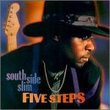

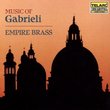
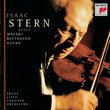
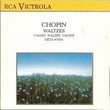
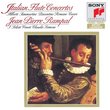
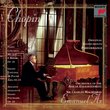


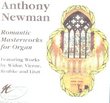
![Vivaldi : The Four Seasons (from Il Cimento dell 'Armonia e dell 'Inventione, Op. 8) [RARE]](https://nationalbookswap.com/cd//m/90/6390/13316390.jpg)